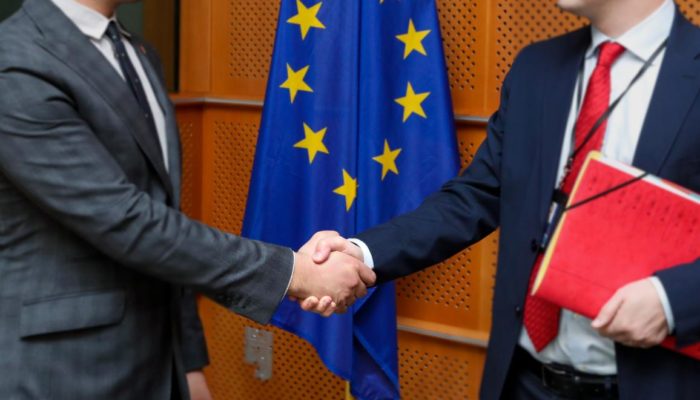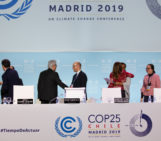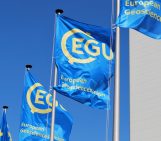
For the most part, EGU’s policy activities focus on science advice, science for policy, and occasionally a policy for science initiative! But Science Diplomacy is another adjacent area that is often asked about. This month’s GeoPolicy Blog post will give an overview of Science Diplomacy, its different strands, and how scientists can engage with it!
What do we mean by science diplomacy?
Science is a universal language. While we all have our own biases, science can be seen as a neutral dialect. It helps transfer vital information to where it is needed and transforms societies. For these reasons, science and collective research efforts are often the first steps in international collaboration or renewed cooperation after periods of tension. And this is one of the reasons why science diplomacy is so important!
Although it doesn’t always have the best association, diplomacy isn’t a dirty word. Diplomacy is simply a process that aims to prevent conflict, sustain peace, and support international collaboration. Science diplomacy, a sub-field of international relations, focuses on these benefits of science rather than the pure knowledge and research outcomes produced. Unlike traditional diplomacy, science diplomacy isn’t solely conducted by political diplomats, but also by researchers, institutions, NGOs, and the private sector.
The three strands of science diplomacy
Being an extremely broad term, science diplomacy is difficult to define precisely and can encompass a huge range of actions and strategies. The American Association for the Advancement of Science has outlined three main science diplomacy strands to help identify the key functions and benefits of science diplomacy. These include:
Science in diplomacy
Almost every policy decision, regardless of the country or government level, has a scientific component to it. Science can help policymakers assess the benefits and potential consequences of different policy pathways more accurately. Science in diplomacy refers to political leaders using science and evidence to support their decision-making on an international level. In many circumstances, national leaders have their own scientific advisors, institutions, or teams that support their positions on international issues. In other cases, international scientific organisations, such as The Intergovernmental Panel on Climate Change (IPCC), provide guidance.
Diplomacy for science
Diplomacy for science refers to the use of political action that furthers or facilitates international scientific collaboration. This includes the negotiation of research and development agreements, exchange programmes, institutionalised knowledge sharing, and enabling international research infrastructures. It is particularly useful for research projects that are high-cost, high-risk or have a global impact or benefits.
An early example of diplomacy for science is the establishment of the European Organization for Nuclear Research (CERN). The CERN Convention was agreed upon by 12 Member States in 1953, less than a decade after World War II. The 12 Member States agreed to contribute to CERN’s budget, ethos, and organisation which led to a swell in momentum and advances in fundamental research that would not have been possible otherwise.
Not only can diplomacy for science result in innovative discoveries and important research outcomes, but it also promotes international travel, visas, permit acquisition, and science for diplomacy.
Science for diplomacy
Science for diplomacy utilises soft power to advance diplomatic objectives. It creates goodwill and supports international relations and enables greater collaboration in other political areas or disciplines. The impact of science for diplomacy actions can be hard to measure but as an individual who works with or manages an international team, you may already be contributing to science for diplomacy by fostering positive international relations.
How can you start engaging with science diplomacy?
As outlined above, you may actually already be engaging in science for diplomacy simply by working with or managing an international team of scientists! But how can scientists make the most of these passive science diplomacy opportunities or engage in science diplomacy more actively?
The first step is to think about how you would like to engage in Science Diplomacy. Are you interested in providing science advice on international issues and science in diplomacy? Perhaps you would prefer to engage in diplomacy for science and highlight the benefits of more international projects and facilities? Or maybe focusing on science for diplomacy and understanding how you can more effectively foster relations within your own international team is more up your alley? Understanding what areas you are most interested in will help you select the skills and processes you would like to prioritise and learn more about.
You can also consider areas in which you or your organisation already engage in science diplomacy and expand on these. If your organisation provides science advice, you may think about how this can be extended to related international issues. If you or your organisation engage in policy for science (advocating for legislation that supports science and research), you might consider how this interacts with diplomacy for science topics. Once you know how you’d like to get involved in science diplomacy, you can select relevant skills to develop that will help you to effectively engage. S4D4C identifies skills that are useful for those working in science diplomacy, many of which overlap with the skills that scientists need to work at the science-policy interface (such as understanding domestic and international policy, interpersonal and cross-cultural skills, and ability to communicate scientific knowledge).
If you’re still not sure what area of science diplomacy you would like to focus on, you might consider taking the free S4D4C European Science Diplomacy Online Course. This extensive online course lets you go at your own pace, gives a great overview of the science-diplomacy landscape, and provides you with essential science diplomacy skills. The AAAS Center for Science Diplomacy also offers a number of Science Diplomacy-related webinars.




